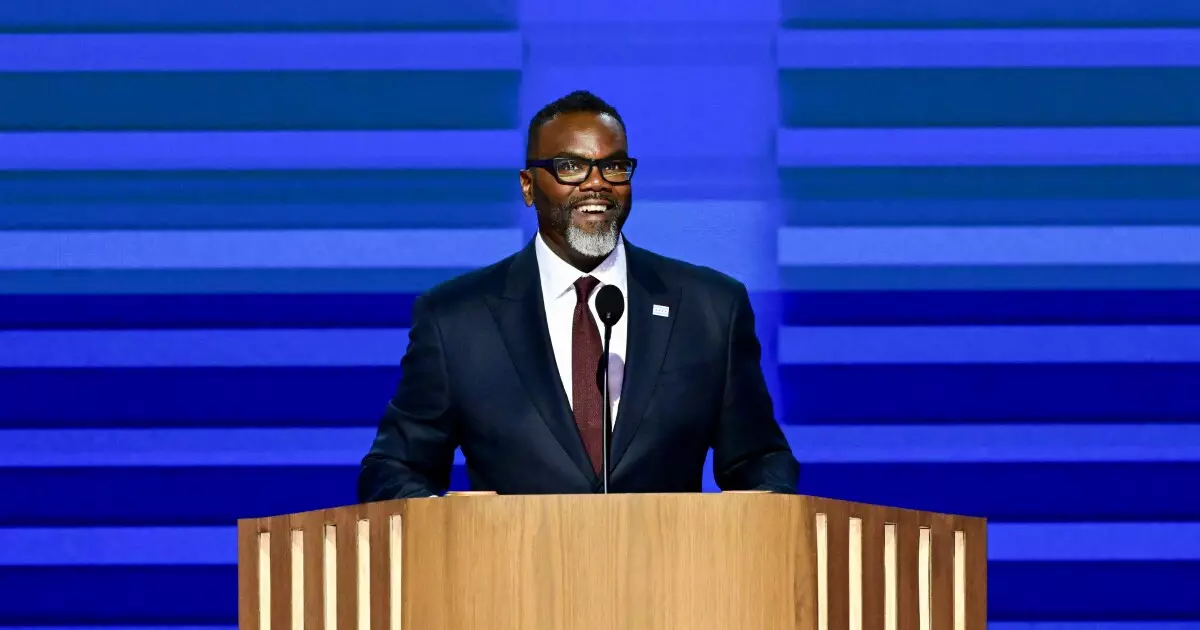Chicago’s Financial Struggles: A Critical Examination of the Proposed Budget and Bond Rating Watch

Chicago, known for its bustling economy and iconic architecture, now faces a critical juncture in its financial management. The recent announcement by Kroll Bond Rating Agency (KBRA) to place the city’s general obligation bond rating on a “Watch Downgrade” reflects growing apprehension about its fiscal stability. As the City Council prepares to deliberate a proposed $300 million property tax hike, the complexities of Chicago’s budgetary challenges have come to the forefront. This article delves into the root causes of these financial woes and the implications for the city’s future.
At the heart of the budgetary discussion is Mayor Brandon Johnson’s proposed property tax increase, aimed at addressing a projected corporate fund shortfall of nearly $982.4 million for 2025. This significant fiscal gap has forced city leaders to reconsider their financial strategies. The property tax hike signifies a departure from previous campaign promises and has encountered resistance from various stakeholders, including members of the City Council. A report by the Civic Federation of Chicago underscores that such tax increases should be a measure of last resort, positioning the proposed increase as a controversial yet necessary remedy to budgetary constraints.
The mayor’s budget proposal attempts to achieve a delicate balance, with an emphasis on structural fixes (80%) alongside one-time revenue measures (20%) to close the looming fiscal chasm. This approach raises critical questions about the sustainability of Chicago’s financial health. The reliance on temporary solutions, particularly in a time of economic uncertainty, is a precarious strategy that may lead to further fiscal challenges down the line.
The KBRA’s decision to place Chicago’s bond rating on watch for downgrade directly correlates to the city’s financial strategies. The agency has notably warned against an over-reliance on non-recurring revenues and quick-fix expenditure savings. Linda Vanderperre, KBRA’s senior director, emphasized the importance of a budget that comprehensively addresses the structural deficit without resorting to one-time solutions. The city must ensure that its approach does not perpetuate budgetary imbalances that could have long-term consequences.
The bond rating experience is not merely a bureaucratic hurdle but has significant implications for the city’s ability to secure financing. A downgrade could lead to higher borrowing costs, further complicating Chicago’s efforts to manage its debt. With plans to sell up to $1.5 billion in debt before year-end to support public projects, the stakes are higher than ever.
In the backdrop of this financial tumult, the City Council has previously expressed discontent with the proposed property tax increase. A letter signed by 29 of the 50 alderpeople underscores the desire for more substantial discussions around alternative means of revenue generation. The reported scaling back of the tax hike and the exploration of reprogrammed federal stimulus funds signify shifting priorities in response to community feedback and fiscal scrutiny.
As negotiations continue, the challenge for the administration lies in achieving consensus without compromising the city’s long-term financial health. The deadline for balanced budget submission by December 31, 2024, looms large, pushing city leaders to devise creative solutions promptly. The inability to reach a viable agreement could exacerbate the current financial instability and further jeopardize bond ratings.
Addressing Chicago’s fiscal challenges requires a comprehensive reevaluation of its revenue generation strategies. KBRA has highlighted potential failures in adhering to established financial policies, particularly concerning the budget stabilization fund and statutory pension funding obligations. This signals an urgent need for the city to reassess its financial practices and ensure compliance with best practices that bolster its fiscal resilience.
Developing sustainable long-term funding sources is imperative to offset the rising costs associated with pensions and debt service. Chicago must explore innovative revenue streams beyond property taxes, such as improving economic activity, optimizing existing resources, and enhancing tax collection mechanisms.
Chicago’s current financial scenario embodies a complex interplay of historical challenges and contemporary pressures. The scrutiny of KBRA and the contentious property tax increase debate reveal much about the city’s economic health and the urgent need for responsible fiscal management. As the City Council deliberates and the proposed budget takes shape, the path forward will heavily influence the city’s financial future. Achieving a balance between necessary revenue generation and prudent fiscal policies will be essential to restore investor confidence and secure Chicago’s financial stability. The decisions made in the coming weeks and months will have lasting implications for all its residents, businesses, and stakeholders.





